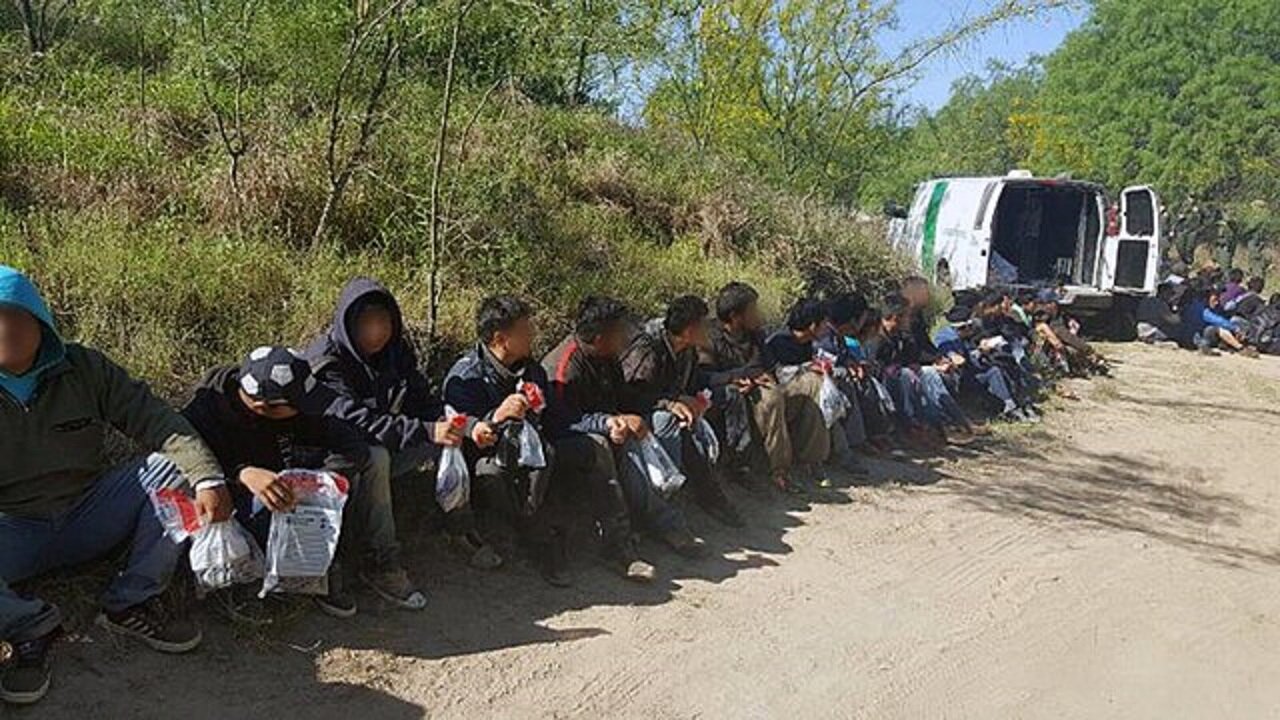Premium Only Content

Southern Border Crisis Ode to El Paso, TX.
El Paso Calling
Words/music by The Singing Editor
All photos and video public domain.
Thumb nail photo: U. S. Government. Public domain.
The U.S. southern border crisis is a multifaceted issue that has been a persistent challenge for the United States, particularly in recent decades. It involves a complex interplay of immigration, national security, humanitarian concerns, and political dynamics. The crisis at the southern border, which stretches over 1,900 miles from California to Texas, has been a focal point of national debate, particularly concerning how the U.S. should manage its borders and handle the influx of immigrants, many of whom are fleeing violence, poverty, and political instability in their home countries.
The crisis is characterized by the large number of migrants attempting to cross the border, both legally and illegally. In recent years, there has been a significant increase in the number of families and unaccompanied minors arriving at the border, particularly from Central American countries such as Guatemala, Honduras, and El Salvador. These migrants are often fleeing dire circumstances, including gang violence, poverty, and political corruption. The journey to the U.S. is perilous, with many facing dangers such as human trafficking, exploitation, and the harsh conditions of the desert terrain.
One of the key issues in the border crisis is the U.S. immigration system, which many argue is outdated and ill-equipped to handle the current influx of migrants. The system is burdened with a backlog of asylum cases, leading to long delays and uncertainty for those seeking refuge in the United States. The asylum process, designed to protect individuals fleeing persecution, has been overwhelmed, with some cases taking years to resolve. This has led to a situation where many migrants are left in limbo, unable to work legally or integrate into society, while others are detained for extended periods in facilities that are often overcrowded and lacking in basic amenities.
The response of the U.S. government to the border crisis has varied depending on the administration in power. Under President Donald Trump, the administration took a hardline stance on immigration, implementing policies such as the "Remain in Mexico" program, which required asylum seekers to wait in Mexico while their cases were processed in the U.S. This policy, along with the construction of a border wall, was aimed at deterring illegal immigration and securing the border. However, it also faced significant criticism for exacerbating the humanitarian crisis, as many migrants were left in dangerous and unsanitary conditions in border towns in Mexico.
The Biden administration, which came into office in January 2021, has taken a different approach, seeking to roll back many of the Trump-era policies and implement a more humane immigration system. However, the administration has faced significant challenges in managing the surge of migrants at the border. The decision to reverse the "Remain in Mexico" policy and halt the construction of the border wall was seen by some as a signal that the U.S. was softening its stance on immigration, leading to an increase in the number of migrants attempting to cross the border. This surge has strained the resources of border enforcement agencies and led to overcrowded detention facilities, prompting criticism from both sides of the political spectrum.
The border crisis has also highlighted the broader geopolitical issues that drive migration. Many of the migrants arriving at the southern border are fleeing conditions in their home countries that are the result of decades of economic instability, violence, and corruption. The U.S. has historically played a significant role in the politics of Central America, and some argue that the current crisis is partly a consequence of U.S. foreign policy in the region. For example, U.S. support for authoritarian regimes during the Cold War and subsequent interventions have contributed to the instability that drives people to flee their homes.
In addition to these historical factors, climate change is emerging as a significant driver of migration. Central America, particularly the "Dry Corridor" region, has been severely impacted by climate change, with prolonged droughts leading to crop failures and food insecurity. This has exacerbated poverty and pushed more people to migrate in search of better living conditions. As climate change continues to impact the region, it is likely that migration pressures will increase, further complicating the situation at the U.S. southern border.
The U.S. southern border crisis is not just a domestic issue; it has significant international implications. The U.S. has sought to address the root causes of migration through foreign aid and development programs aimed at improving conditions in Central America. The Biden administration has proposed a $4 billion aid package to address the "root causes" of migration, including economic development, anti-corruption efforts, and security initiatives. However, there is skepticism about whether these efforts will be sufficient to stem the flow of migrants in the short term, given the deep-seated challenges facing the region.
The border crisis has also strained U.S. relations with its neighbors, particularly Mexico. The U.S. has relied on Mexico to help manage the flow of migrants, particularly through the implementation of the "Remain in Mexico" policy and increased border enforcement by Mexican authorities. However, this has placed significant pressure on Mexico, which is also grappling with its own challenges related to crime, corruption, and economic inequality. The U.S.-Mexico relationship is crucial in managing the border crisis, but it is also fraught with tensions and competing interests.
The political dynamics of the border crisis are also significant. Immigration has become one of the most polarizing issues in U.S. politics, with deeply entrenched positions on both sides of the debate. For many conservatives, the crisis is seen as a failure of border security, with calls for stricter enforcement and tighter controls on immigration. On the other hand, many progressives view the crisis as a humanitarian issue, advocating for more compassionate policies and a reform of the immigration system. This polarization has made it difficult to achieve meaningful reform, with immigration legislation often stalled in Congress due to partisan gridlock.
In conclusion, the U.S. southern border crisis is a complex and multifaceted issue that defies easy solutions. It is driven by a combination of factors, including migration pressures from Central America, an overwhelmed immigration system, and deeply entrenched political divisions. Addressing the crisis will require a comprehensive approach that includes reforming the U.S. immigration system, addressing the root causes of migration in Central America, and managing the geopolitical and domestic challenges that contribute to the situation. As the crisis continues to unfold, it remains a critical test of U.S. leadership, both at home and abroad.
-

Grant Stinchfield
33 minutes agoExposed: COVID Shots Loaded with Contaminated DNA
-
 UPCOMING
UPCOMING
TheAlecLaceShow
1 hour agoGuest: Rep. Warren Davidson | Trump Presser | NJ Drones | Judge Merchan denial | The Alec Lace Show
55 -
 59:27
59:27
The Dan Bongino Show
4 hours agoTrump Drops The Hammer At Press Conference (Ep. 2389) - 12/17/2024
482K1.09K -
 1:57:35
1:57:35
Steven Crowder
3 hours agoFemcel Shooter? Exploring Madison Shooting Myths One By One
288K142 -
 LIVE
LIVE
The Shannon Joy Show
5 hours ago🔥🔥LIVE Exclusive With Roger Ver's Co-Author Steve Patterson & Crypto Expert Aaron Day! Hijacking Bitcoin, The Blockchain Wars & Why This MATTERS To You.🔥🔥
363 watching -
 LIVE
LIVE
Bare Knuckle Fighting Championship
1 day agoThe Bare Knuckle Show with Brian Soscia
136 watching -
 1:29:31
1:29:31
Russell Brand
3 hours agoBREAK BREAD EP. 9 - BRANDON LAKE
111K7 -
 3:12:17
3:12:17
Matt Kohrs
13 hours agoLive Trading $1M, The Bitcoin Pump & New Squeeze Alert || The MK Show
37.1K2 -
 LIVE
LIVE
LFA TV
15 hours agoBAN TRANS! | LIVE FROM AMERICA 12.17.24 11am EST
5,125 watching -
 5:46
5:46
China Uncensored
16 hours agoChina Just Lost a Quarter TRILLION Dollars
31.1K3